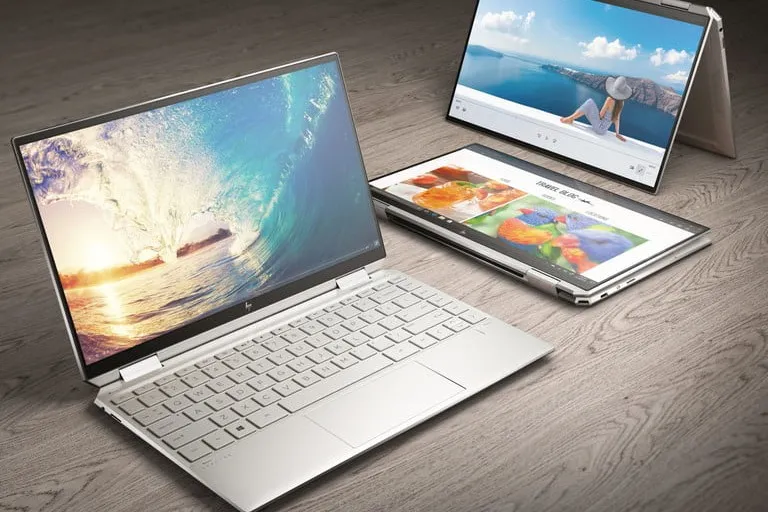Hewlett-Packard (HP) has been a key player in the tech industry for over eight decades,…

In the rapidly evolving digital age, where innovation is the driving force and technology companies race to lead in areas such as cloud computing, artificial intelligence, and consumer electronics, one question that often arises is whether HP (Hewlett-Packard) can still compete with the likes of tech giants like Apple, Microsoft, Google, and Amazon. Once a dominant player in the computing industry, HP has seen its role shift in recent years, with changes in the global tech landscape. Despite this, the company continues to remain relevant through its focus on innovation, strategic partnerships, and evolving its business model to meet the demands of the digital age. However, whether HP can truly compete with its tech counterparts in the long run remains a matter of debate.
In this article, we will explore HP’s current position in the tech world, how it has adapted to the changing landscape, and whether it has what it takes to compete with other giants in the digital age.
Table of Contents
ToggleHP’s Evolution: From Personal Computers to Enterprise Solutions
Founded in 1939 by Bill Hewlett and Dave Packard, HP made its mark as a pioneer in the development of personal computers, printers, and hardware solutions. The company’s dominance grew in the 1980s and 1990s with its range of consumer PCs, servers, and laser printers. However, as the tech world entered the 2000s and the digital age took off, HP, like many other established companies, faced increased competition from newer and more agile players.
Over the past two decades, HP has undergone several transformations, which include splitting its operations into two distinct companies: HP Inc., which focuses on printers and personal computers, and Hewlett Packard Enterprise (HPE), which focuses on enterprise products and services like cloud computing, networking, and IT infrastructure. This restructuring allowed HP to streamline its focus on specific markets and technologies, but it also exposed the company to growing competition from both startups and industry veterans in the fields of enterprise solutions and consumer electronics.
The Digital Age: Challenges and Opportunities
The digital age has significantly reshaped the tech industry. Key trends such as cloud computing, artificial intelligence (AI), big data, and the Internet of Things (IoT) are driving innovation across various sectors. Tech giants like Amazon, Microsoft, and Google have firmly positioned themselves as leaders in these areas. Amazon’s cloud division, Amazon Web Services (AWS), has redefined the way businesses think about IT infrastructure. Microsoft has pivoted from its traditional software business to a cloud-first strategy with Azure, while Google continues to lead in AI and machine learning through its Google Cloud and AI-based services.
For HP, competing in the digital age means navigating through several challenges:
- Cloud Computing: While HP has made significant investments in cloud computing, it still lags behind Microsoft’s Azure and Amazon’s AWS in terms of market share. HPE offers solutions aimed at hybrid cloud infrastructure, which is gaining traction among businesses looking to combine on-premise and cloud-based solutions. However, it faces tough competition from the dominant players.
- Artificial Intelligence: AI has become one of the most transformative technologies in the digital age. Companies like Google and Microsoft are leveraging AI to improve their products and services, making significant strides in AI-powered solutions such as virtual assistants, machine learning platforms, and autonomous vehicles. HP, while involved in AI research and development, has not been able to position itself as a leader in the AI space.
- Consumer Electronics: HP’s focus on personal computers and printers has allowed it to maintain a foothold in the consumer electronics market. However, it faces intense competition from Apple, which continues to innovate with its premium laptops, tablets, and smartphones, as well as companies like Dell and Lenovo in the PC market. HP’s laptops and desktops are competitive, but they are not necessarily seen as revolutionary when compared to the unique designs and innovation from Apple.
HP’s Strategic Moves: Adaptation to the Digital Age
Despite the challenges, HP has made a number of strategic moves to adapt to the demands of the digital age. By focusing on core areas and improving its offerings, the company has been able to remain relevant in an ever-changing market.
- Emphasis on Enterprise Solutions: HP has strategically shifted its focus to the enterprise solutions market. HPE, as a separate entity, has invested heavily in cloud-based services, edge computing, and hybrid IT. HPE’s recent acquisitions, such as the purchase of Cray Inc. for its supercomputing technology, have helped it stay competitive in the enterprise sector. The company’s edge computing offerings also position it well to tap into the growing demand for real-time data processing in industries like manufacturing, healthcare, and retail.
- Innovation in Printing and Personal Computing: HP continues to lead in the printing industry with its wide range of products, from consumer printers to enterprise printing solutions. The company has embraced digital printing technologies and introduced new solutions like 3D printing, which has the potential to disrupt manufacturing processes. In personal computing, HP has focused on high-quality laptops, such as the Spectre x360 and Elite Dragonfly, which cater to both consumer and business markets. With a solid focus on design, durability, and performance, HP remains a respected brand in the PC industry.
- Sustainability Initiatives: In response to growing concerns about the environment, HP has taken steps to integrate sustainability into its business model. HP has committed to using sustainable materials, such as recycled plastics, in its products. In addition, the company has focused on reducing its carbon footprint and promoting responsible recycling. These efforts align with consumer preferences for eco-friendly products and help HP maintain a positive brand image.
- Partnerships and Collaborations: HP has partnered with several key players in the tech industry to expand its reach. For example, it has collaborated with Microsoft on Windows-based devices, ensuring that its products are optimized for Microsoft’s software ecosystem. HP has also formed alliances with Google to integrate Chrome OS into some of its devices, catering to the growing demand for cloud-based computing. These collaborations enable HP to leverage the technology of others while still maintaining its own identity.
Can HP Compete with the Big Tech Giants?
While HP has managed to maintain its position as a strong player in certain markets, the question remains: Can it compete with the likes of Amazon, Microsoft, Google, and Apple?
- In the Enterprise Sector: HP’s HPE division is well-positioned to compete with Microsoft and Amazon in the hybrid cloud market, thanks to its focus on providing IT infrastructure solutions. However, it faces stiff competition from the tech giants’ cloud offerings, which are well-entrenched in the market. HPE’s focus on edge computing and supercomputing offers a potential growth area, but it remains to be seen if the company can achieve widespread adoption.
- In Consumer Electronics: HP competes with companies like Apple and Dell in the PC market, but it lacks the brand cachet that Apple enjoys, especially in the premium consumer segment. Apple’s innovations in hardware and software integration continue to set the standard for the industry, making it difficult for HP to replicate the same level of success in the consumer electronics market.
- In AI and Cloud: When it comes to AI and cloud, HP is still trailing behind the big tech players. While it has made investments, it would need to make significant advancements in AI research, machine learning, and cloud technology to compete effectively with companies like Google, Amazon, and Microsoft.
Conclusion: HP’s Path Forward
HP may not be able to compete head-to-head with the largest tech giants in every area, but it has carved out a sustainable niche for itself in enterprise solutions, printing, and personal computing. The company’s adaptability, focus on sustainability, and ability to forge strategic partnerships will continue to be key factors in its success.
In the digital age, HP’s competitive edge lies in its ability to innovate within its core competencies while adapting to emerging technologies. While it may never surpass Amazon, Apple, or Google in market dominance, HP’s continued evolution will allow it to remain a respected player in the tech industry, providing value to businesses and consumers alike.
Related Posts
-
HP's Innovation and Impact on the Tech Industry: A Legacy of Excellence
-
What Makes HP a Leader in the Tech Industry?
Hewlett-Packard, or HP, has long been considered one of the most influential and prominent companies…
-
Zeffferial: Unlocking the Mysteries of a New Digital Age
The digital landscape is constantly evolving, with new platforms, tools, and technologies emerging almost daily.…
-
What is HP HPIA?
HP HPIA (HP Image Assistant) is a powerful diagnostic and troubleshooting tool developed by HP…
-
hp anzahl gedruckter seiten
The HP printed page count refers to the total number of pages a printer has…
-
HP LaserJet 278 Toner
The HP LaserJet 278 toner refers to the toner cartridges used in the HP LaserJet…





